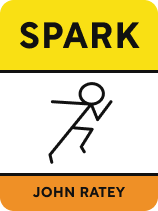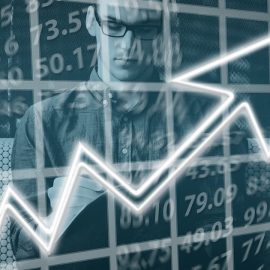

This article is an excerpt from the Shortform book guide to "Spark" by John Ratey. Shortform has the world's best summaries and analyses of books you should be reading.
Like this article? Sign up for a free trial here .
Why is it important to maintain an exercise routine as you grow older? Can exercise help you age better?
Aging is a fact of life—it happens to all of us. But not everyone ages at the same rate. If you don’t exercise, you’ll age faster both on the inside as well as the outside. Additionally, exercise protects the aging brain and age-related hormonal fluctuations women face after menopause.
Keep reading to learn about exercise and aging.
Getting Old
For all of us, Ratey, the author of Spark, contends that the toll a lifetime of stress takes on the brain becomes hard to escape. Characteristic features of aging, such as cognitive decline, depression, and dementia, are at least partially caused by the body’s cells being worn down by the stressors of life.
Ratey argues that as your body becomes equipped to handle stress through exercise, it becomes better able to preserve its resources against the negative effects of aging. For example, as neurons wear out in the brain, the neural network thins—exercise counteracts this loss by supporting neuroplasticity and neurogenesis.
(Shortform note: Researchers have recently found that exercise has a neuroprotective role in staving off cell degeneration caused especially by aging, Parkinson’s, and Alzheimer’s. They advise that exercise should be used as an add-on therapy, together with other forms of treatment, to generate the most benefits.)
Women and Aging
Women face unique stressors related to menstruation, pregnancy, and menopause. The hormone fluctuations that attend each of these can lead to anxiety, depression, and attention issues, among other things. During pregnancy, maternal stress can have severe impacts on the fetus.
(Shortform note: A recent analysis found a strong correlation between exercise and the reduction of estrogen. High levels of estrogen have been linked to breast cancer. Subjects who exercised—especially at higher intensities—showed a modest reduction in the total levels of one form of estrogen.)
Ratey contends that exercise has a powerfully stabilizing effect in the midst of all the hormonal fluctuations women face in life. Strikingly, he notes that some data suggest it’s even capable of reversing some of the negative effects fetal alcohol syndrome has on the baby.
(Shortform note: Since the publication of Spark, researchers have continued to examine the impact of exercise on children with executive-function disorders, including fetal alcohol syndrome (FASD). The analysis found that children with FASD who exercised showed major gains in the areas of working memory and response inhibition, and they were also significant for attention. Another noteworthy finding of the analysis is that exercise-induced gains were higher for children with FASD and autism-spectrum disorders than they were for children with ADHD.)

———End of Preview———
Like what you just read? Read the rest of the world's best book summary and analysis of John Ratey's "Spark" at Shortform .
Here's what you'll find in our full Spark summary :
- How exercising can help with addiction, anxiety, and depression
- A look at how exercise optimizes brain function and supports mental health
- What exercises are the most beneficial, and how to stick to a routine






